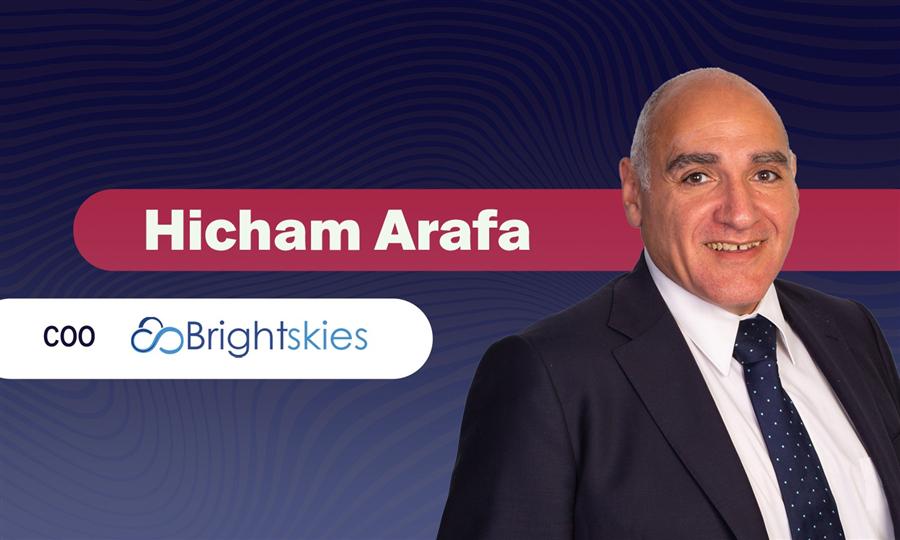PFG Powers Egypt's Rise in Regional Venture Debt
Updated 11/16/2025 9:00:00 AM
Arab Finance: The growth debt and venture capital ecosystem in the Middle East and North Africa (MENA) is experiencing record activity as new funding structures transform how regional startups scale and innovate. By the third quarter (Q3) of 2025, the year-to-date venture capital investment had already surpassed $6.6 billion, with 514 rounds closed, continuing momentum despite macroeconomic challenges, according to Wamda data on 2025 investment in MENA.
Growth debt has emerged as a critical alternative, with total capital raised in the MENA venture debt market expected to reach nearly $966 million in 2025, accounting for up to 44% of all startup funding in the first half (H1) of 2025. Egypt, after grappling with currency fluctuations, registered a 106% year-on-year increase in funding volume this year, raising $179 million across 52 deals. Debt instruments comprised about 13% of the local total, according to Statista.
Partners for Growth (PFG) plays a central role in this transformation, providing flexible debt and hybrid solutions that allow founders to access scalable capital while preserving equity. Arab Finance sat down with Armineh Baghoomian, Managing Director, Head of EMEA, and Co-Head of Global Fintech at PFG, to explore the firm’s investment thesis for Egypt, its partnership approach with local entrepreneurs, and its future vision for growth debt across the region’s technology landscape.
- What is PFG’s thesis for Egypt within your broader EMEA strategy? How does Egypt’s digital economy and demographic landscape fit in?
At Partners for Growth (PFG), we look for ecosystems where strong fundamentals meet underserved demand for financing and a focus on technological innovation. Egypt exemplifies this, as its large, digitally native population creates one of the region’s largest addressable markets. Sectors like fintech, e-commerce, healthtech, and logistics are all gaining traction—fields where PFG has both deep conviction and an extensive track record.
At the same time, Egypt presents macroeconomic and structural challenges. Shifting regulatory frameworks, inflation, and evolving capital-market dynamics create complexity in accessing growth-focused funding. Legal and credit infrastructures are developing, requiring lenders to focus on enforceability, data, and governance standards. For PFG, this environment highlights the need for disciplined structuring and close partnership with founders and local stakeholders to build scalable credit frameworks.
Our thesis in emerging markets is that infrastructure gaps create opportunities for resilient, tech-enabled businesses. Egypt is full of companies addressing national and regional needs.
Strategically, Egypt serves as a central bridge between North Africa and the Gulf, reinforcing its role as a priority market for PFG’s growth debt offerings across the wider region.
- PFG specializes in venture debt and growth capital. For readers familiar with equity financing, what distinguishes your model, and what advantages does it offer to growth-stage businesses?
Growth debt is designed for post-revenue companies looking to scale. Unlike venture capital, it does not typically require an equity component, allowing founders to extend runways and minimize ownership dilution.
PFG goes further with expertise in asset-backed financing—structures secured by assets such as receivables, inventory, loan portfolios, or contractual revenues. This allows us to tailor capital to a company’s core economics, not just balance-sheet or equity values.
Growth-stage businesses in fields like fintech and e-commerce benefit from flexible capital that aligns with revenue and asset performance. This model enables founders to unlock working capital and scale programs while preserving equity.
PFG’s approach combines the speed and flexibility of venture debt with the scalability of structured credit, helping growth companies turn assets into a long-term engine for expansion.
- What Egyptian companies are currently partnering with Partners for Growth (PFG), and what can you share about your engagement with the local ecosystem?
One of PFG’s partners with a presence in Egypt is TruKKer, a regional digital freight and logistics company headquartered in Dubai with operations spanning Saudi Arabia, Egypt, Bahrain, Jordan, and Oman. TruKKer secured growth debt financing from PFG, the first financing of its kind in the region, to accelerate its rapid expansion.
- How do you evaluate local market strength versus potential for regional or global expansion when considering investments?
At PFG, we look for strong local traction and clear expansion potential. Home-market performance demonstrates product-market fit and scaling capacity, but real growth comes from regional and global reach.
We assess credit profile, asset value, and profitability to confirm companies can use growth debt to scale effectively. We avoid financing companies with unsustainable economics or those seeking bridge funding.
Our financing aligns with each company’s trajectory. We work closely with founders for responsible debt management, helping local success stories become regional and global leaders.
- How does PFG address the unique financing needs of high-growth MENA companies?
PFG understands MENA’s regulatory and cultural context, adapting solutions such as Sharia-compliant structures, especially in Saudi Arabia. We now help shape regulatory frameworks regionally, reflecting our role as a trusted partner.
Our solutions are tailored by growth stage and capital need, with custom covenants, repayment schedules, and flexible terms. Deep due diligence ensures each deal aligns with a company’s long-term vision. This bespoke method contrasts with the more rigid approach of traditional banks.
- What trends are you seeing in growth debt demand among Egyptian startups compared to the EMEA region?
Egyptian founders are still at an earlier stage in the growth debt adoption curve compared to peers in more mature EMEA markets, but they are catching up fast.
Egypt’s large market means demand for flexible solutions is robust. Growth debt is increasingly viewed as a viable tool for sustainable company expansion. We expect accelerating demand as Egypt’s ecosystem develops, and more local and regional success stories appear.
- Which types of structured credit or asset-backed financing are most accessible for tech and fintech companies?
Growth debt is especially accessible for innovative businesses that may not meet traditional bank criteria. Globally, only about 22% of bank lending targets SMEs. This rate is even lower in MENA, where lending favors large corporates or families.
For tech and fintech, the best options are those that suit their revenue model, so PFG customizes financing for each client. Asset-backed loans are especially effective in lending, payments, and e-commerce. In Saudi Arabia and the GCC, there is a strong demand for warehouse facilities, which we introduced to the region in 2020 and have since adapted for Sharia compliance.
- Which startup sectors in the GCC are most promising for growth debt, and why?
We see strong demand in fintech, healthtech, SaaS, and e-commerce sectors with significant operating capital needs, where founders prefer to avoid early dilution.
PFG focuses on areas underserved by traditional funding, including Sharia-compliant segments. Regional governments’ focus on supporting digital finance and innovation propels demand for growth debt, making it key in the capital stack for companies shaping the region’s digital future.
- How is the capital landscape evolving in MENA, and what role will PFG play over the next five years?
Debt capital is still underdeveloped in the region, even as venture capital becomes more available. High-growth SMEs lack access to flexible debt solutions, which PFG is working to change.
Since entering MENA five years ago, PFG has committed over $400 million. It is building a pipeline of deals, including the GCC’s first warehouse facilities for fintech. Beyond funding, we shape regulations and provide Sharia-compliant products, positioning ourselves as a long-term ecosystem partner.
Looking ahead, we will focus on high-growth sectors central to national strategies, particularly fintech, SaaS, and digital health, in line with programs like Saudi Vision 2030 and UAE Vision 2031.
With a young, tech-savvy population, demand for scalable, minimally dilutive financing will grow. PFG aims to remain central to this evolution.
- How do current regional economic and geopolitical trends affect your investment strategy and risk assessment?
We remain optimistic about regional prospects. Economic growth and ambitious national agendas are accelerating digitalization and innovation across the Gulf. The UAE’s rapidly expanding AI market is paving the way for new unicorns—companies often in need of tailored financing to support rapid expansion.
Growth debt fills a gap as equity becomes costlier and conventional lending harder to access. Early support from PFG has helped companies like Tabby become regional unicorns.
Our ability to deliver resilient financing comes from deep regional expertise and partnerships with institutions backed by entities like the Public Investment Fund (PIF) and Saudi Venture Capital (SVC), allowing us to back the region’s most ambitious founders and drive lasting economic value.
Related News












